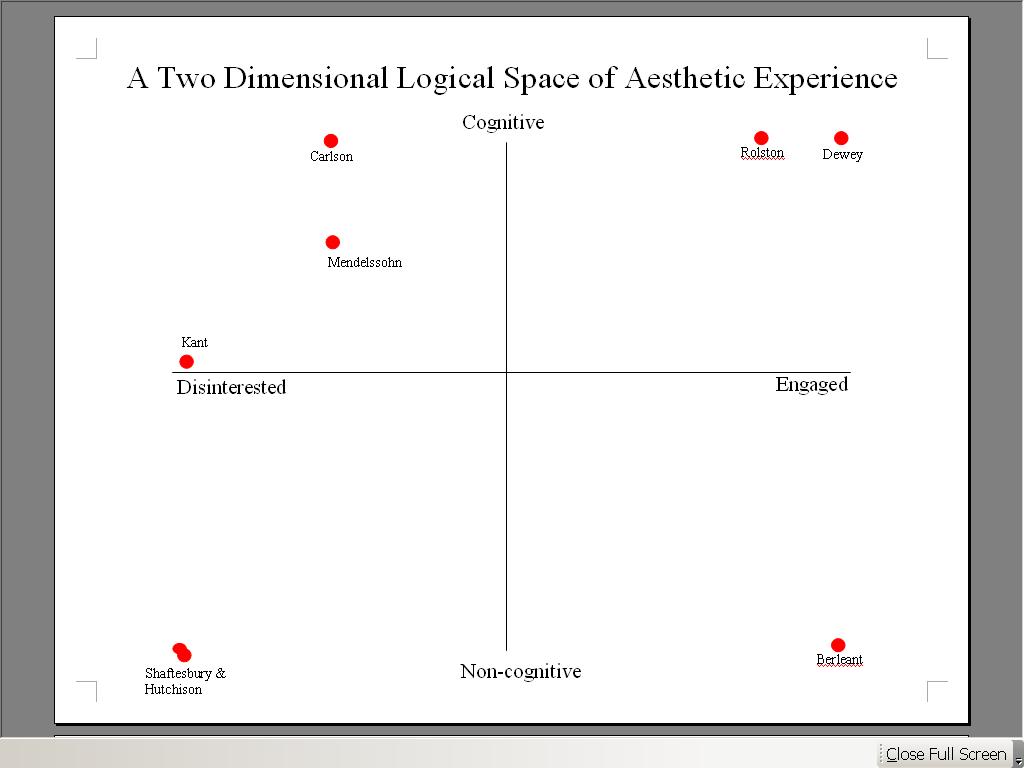I want to assert that aesthetic disinterestedness, as it has been described in western philosophy since the 18th century, and nonattachment, as it has been has been described in Indian and Buddhist philosophy for thousands of years, name similar mental states. Here's the problem: in talking about aesthetic experience of nature in the western tradition, I distinguished two axes of disagreement. People have argued over whether aesthetic experience is "disinterested" or "engaged" and whether it is "cognitive" or "noncognitive." The cognitive/noncognitive dispute is over whether the aesthetic appreciation of a natural environment, should be guided by ideas from history and natural science or whether it should be free of all guiding narratives. The disinterested/engaged debate is over whether one should feel a personal stake in the object of aesthetic contemplation or view it from a detached perspective. You can then map the position in the debate over the aesthetics of nature onto a two-dimensional space, like this.

I love making little diagrams like this. I'd like to populate this one with a lot of thinkers and then actually publish it with my article, but it probably wouldn't be scholarly enough.
In any case, I want to put Buddhist nonattachment in the lower left, as a disinterested, noncognitive state. This sounds right if you talk about the dots as "experiential states." But it does't work as well if you say they are "mental states", which is what I did in the last post. Noncognitive mental state doesn't sound right. I suppose I should just change "mental" to "experiential" when I work the material in the last post into the actual essay, but that might make the references to meaning in the head awkward.
Drop the problem and move forward.
We need to zoom in on the lower left corner, look at the notions of disinterestedness that have been held in the western tradition and how they relate to noncognitive experience. Then we need to do the same for nonattachment. Lets start with disinterestedness.
Shaftsbury
kids need reading to

No comments:
Post a Comment